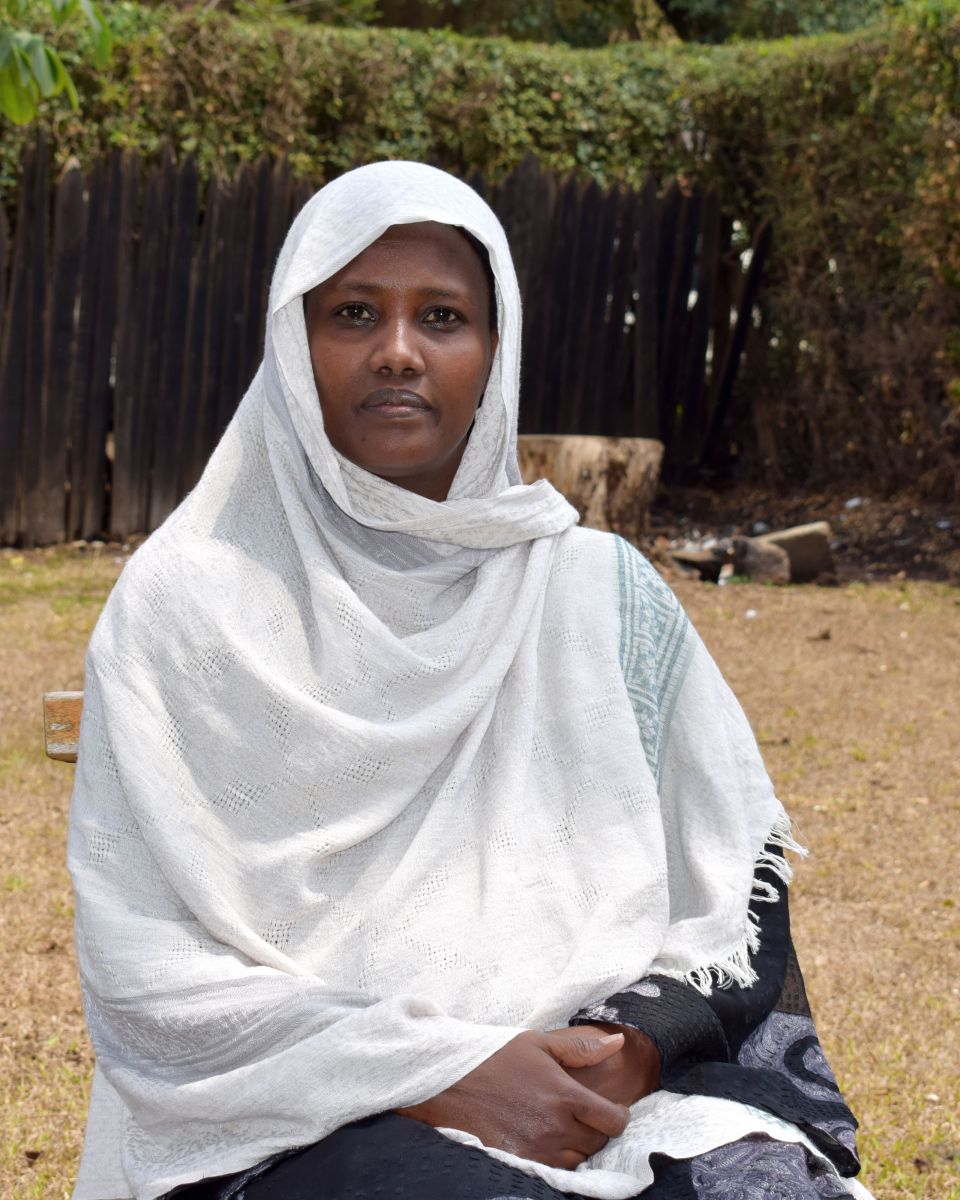Most important humanitarian competencies – coffee with Buke Dabasso
Buke Dabasso is in charge of Integrated Community Case Management (ICCM) at Action Against Hunger in Kenya. On the occasion of the release of the Core Humanitarian Competency Framework (CHCF) and a set of accompanying tools, including ready-made training modules and a video clip, we had a chat with her and asked what competency she considers essential as a humanitarian worker.

Buke, could you tell us a bit more about yourself and your work with Action Against Hunger…
I’m from Marsabit County, but I’m based in Nairobi. Currently, in Isiolo, we’re running interventions to reduce malnutrition rates. So, my main job is to ensure that community health workers can provide diagnostics and treatment for illnesses such as pneumonia, diarrhea and malaria to families with difficult access to health facilities. As you may know, lack of food is not the only cause of malnutrition, There are other underlying causes, such as diseases, Our goal is to link ICCM with malnutrition in order to reduce the rate of mortality and morbidity.
We’re now looking into ways to get our services closer to people. In the communities, we have community health workers and community health volunteers. We are now looking at calling upon our community health volunteers, who are trained in health and nutrition, in order to shorten the distances for the most vulnerable community members and those who are living very far from health facilities. Our volunteers can diagnose and advise mothers.
What made you decide to become an humanitarian aid worker?
I came into humanitarian work because of my background. As I mentioned, I’m from Marsabit county, the northern part of the country, where most people keep livestock. Due to the continuous drought periods in Marsabit, livestock die, which brings about a lot of hunger and suffering. Growing up as a girl child to see mothers and children suffering, I had to come back and work in my community.
Who do you admire in humanitarian work?
The first person who comes to mind is Mother Teresa. What I’ve read about her and her work is that without giving much (material), she gave love to the poor. She gave love where it was lacking and was very charitable.
What is the one thing you enjoy most about working with Action Against Hunger?
I enjoy the work culture at Action Against Hunger the most. There’s a feeling of being welcomed to a community of people who understand you. The integration of staff members regardless of their expertise is great, from the driver to programme officers, finance…all the way to support staff. That integration makes us all get along well and, as a result, things run smoothly.
What has been your most challenging experience while working in the field?
As I mentioned earlier, in the field we have community health volunteers who act as the link between the partners (Ministry of Health & Action Against Hunger) and the community. From their titles, you can see that they are volunteers, but when they are going from house to house to assess their communities, community members become hostile because they assume that the volunteers are being paid to assess their children.
In the field, there are so many activities going on. In the office, when we plan for any activity, we consider the distance and all the other logistical aspects, but when we get to the field, things don’t always go exactly as planned. Sometimes we travel long distances only to get there and be informed that the community members are either busy or in another meeting. Such days are either the longest or the hardest because we’re not in the office working and neither are we working in the field.
What has been your most rewarding experience while working in the field?
Sometimes that’s difficult to quantify, but if I had to pinpoint, I would say it is the fact that I’m contributing towards alleviating hunger and looking for solutions. I get satisfaction in little things, like when I see the communities accept and take ownership of our programmes. I am happy when I meet mothers who tell me that they can now detect when their children have fever or diarrhoea, and know when to take them to the hospital. Seeing the mothers warming up to our volunteers is also very satisfying.
What do you think is the most important quality and competency to have to be a successful humanitarian worker?
You have to be willing to sacrifice. For example, if you are a mother and you have to be in the field, you have to make the sacrifice to be away from your child to help other mothers. Another thing is patience and understanding because in humanitarian work there are so many stakeholders that operate differently.
In your day-to-day work, how do you ensure that you involve affected people and communities as closely as possible?
As a humanitarian worker, when we are sourcing for funds, we have to involve the community with which we have envisioned to work. We have discussions with them to identify problems and gaps, then plan for a way forward with them. This is the only way to make them feel ownership of the programme. This also helps create bonds with the community, which makes them open up to you.
Describe yourself in one word?
Resilient. I can survive in difficult environments and conditions because of my background.
This interview was kindly carried out by Charles Kahiro, Communications & Technology Manager, Human Resources, Learning & Development Department, Action Against Hunger.
